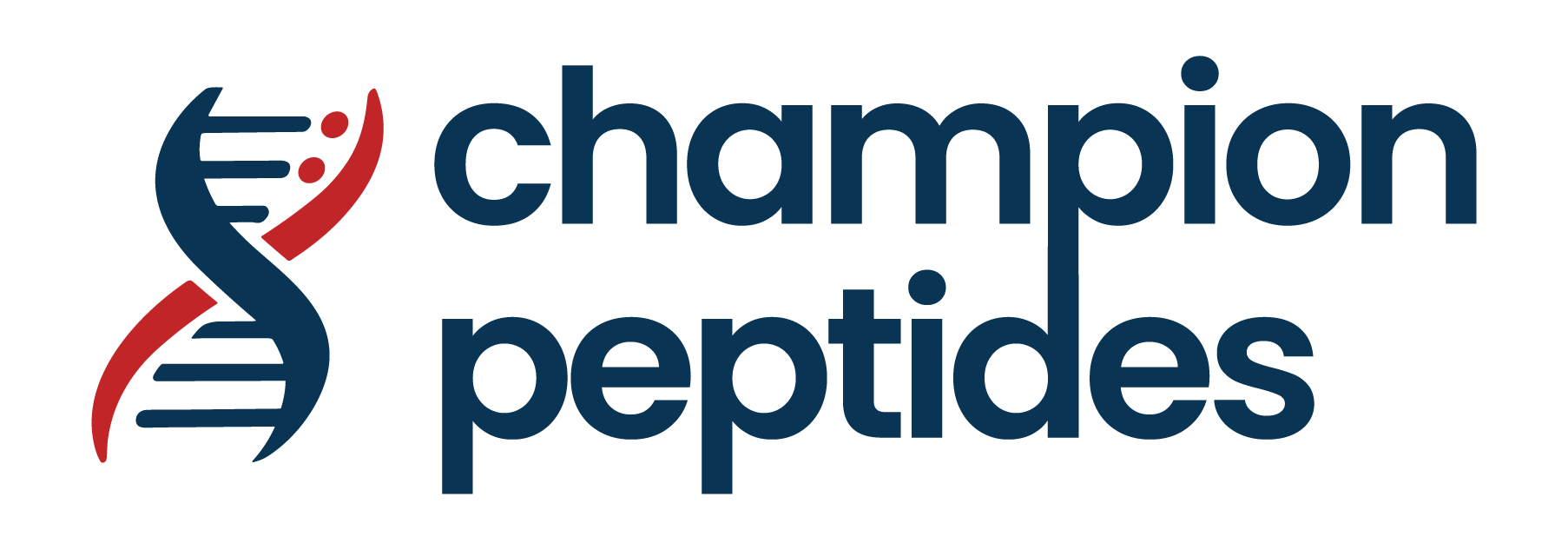Research & Sourcing
Discover the Science Behind Our Peptides
Champion Peptides is dedicated to providing verified, research-backed insights on the efficacy of peptides for muscle growth, recovery, and anti-aging. Below are links to pivotal research articles for each peptide offered, showcasing their positive effects in human and animal studies.
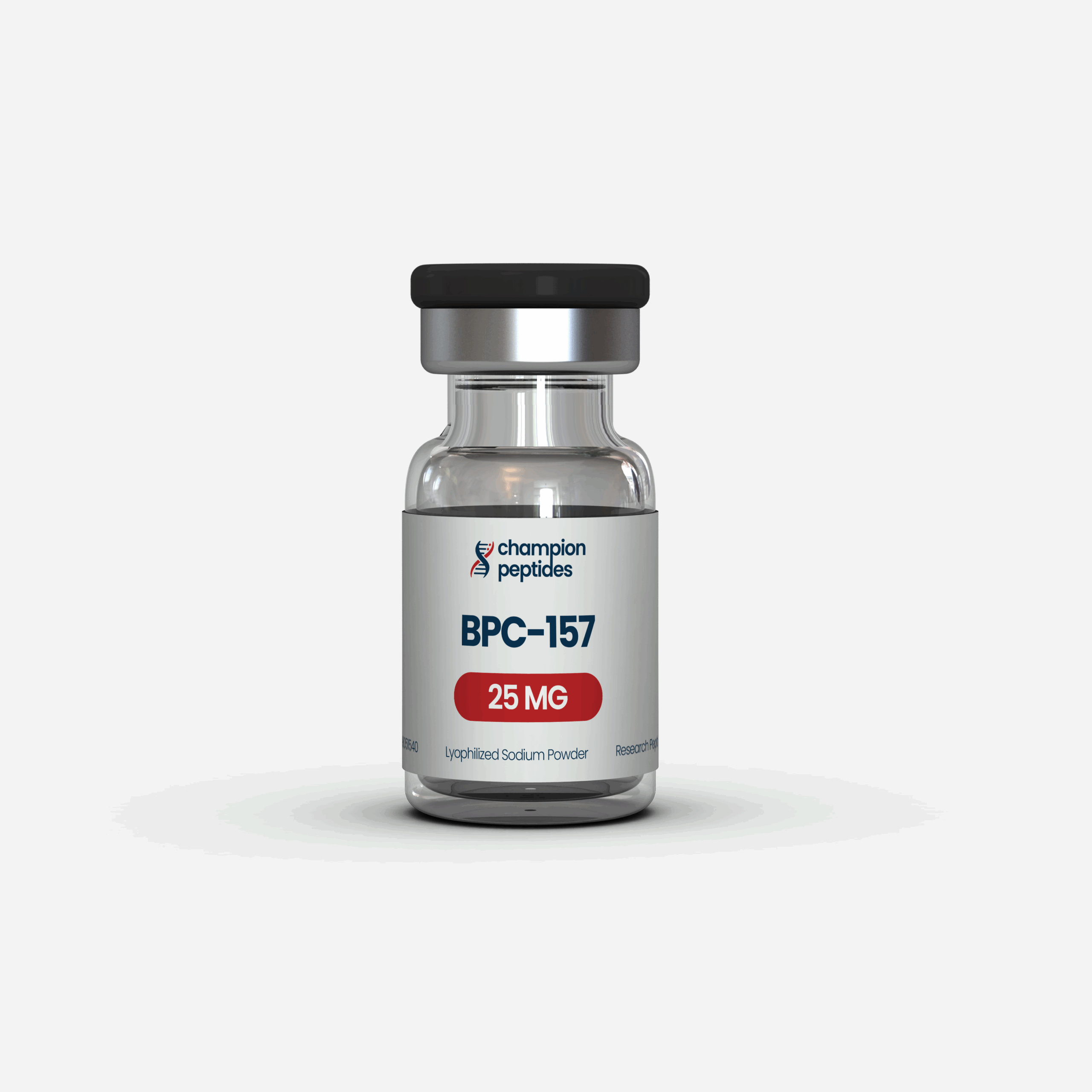
BPC 157 (25 mg)
Overview
BPC 157, also known as the “Body Protection Compound,” is a peptide with robust regenerative potential, aiding in tissue repair, inflammation reduction, and accelerated recovery. It supports healing across various tissues, including muscles, tendons, and the gastrointestinal tract, and exhibits promising therapeutic benefits.
Positive Effects in Humans
- Accelerates muscle and joint recovery after intense physical exertion.
- Reduces inflammation aiding in the repair of tendons, ligaments, and cartilage.
- Promotes cell repair and regeneration, optimizing recovery.
- Supports gastrointestinal health by healing the stomach and intestinal lining.
- Potential neuroprotective benefits, encouraging nerve cell repair.
Key Research Sources
Journal of Physiology and Pharmacology: Influence on Muscle and Tendon Healing (Seiwerth et al., 1997)
Peptides.org
Journal of Orthopaedic Research: BPC 157 on Tendon-to-Bone Healing (Staresinic et al., 2003)
Alpha Labs
Current Neuropharmacology: Neuroprotective Benefits of BPC 157 (Sikiric et al., 2016)
LVLUP Health
Journal of Applied Physiology: BPC 157’s Effects on Tendon Healing
LVLUP Health
Thymosin Beta-4 (10 mg)
“TB500”
Overview
TB500 is a synthetic variant of Thymosin Beta-4, recognized for supporting tissue repair, flexibility, and muscle endurance. It is frequently used in athletic recovery to aid in muscle, tendon, and ligament regeneration, enhancing performance and reducing recovery times.
Positive Effects in Humans
- Enhances muscle repair and tissue regeneration.
- Increases flexibility and range of motion.
- Boosts endurance and physical stamina.
- Accelerates wound healing and tissue recovery.
- Reduces inflammation, alleviating post-exercise soreness.
Key Research Sources
Journal of Orthopaedic Research: Muscle Tissue Regeneration with TB500
Peptides.org
Medical Research Archives: TB500 in Tissue Repair (Balogh & Radosevic, 2013)
Alpha Labs
International Journal of Sports Medicine: Recovery in Athletes (Sever et al., 2019)
LVLUP Health
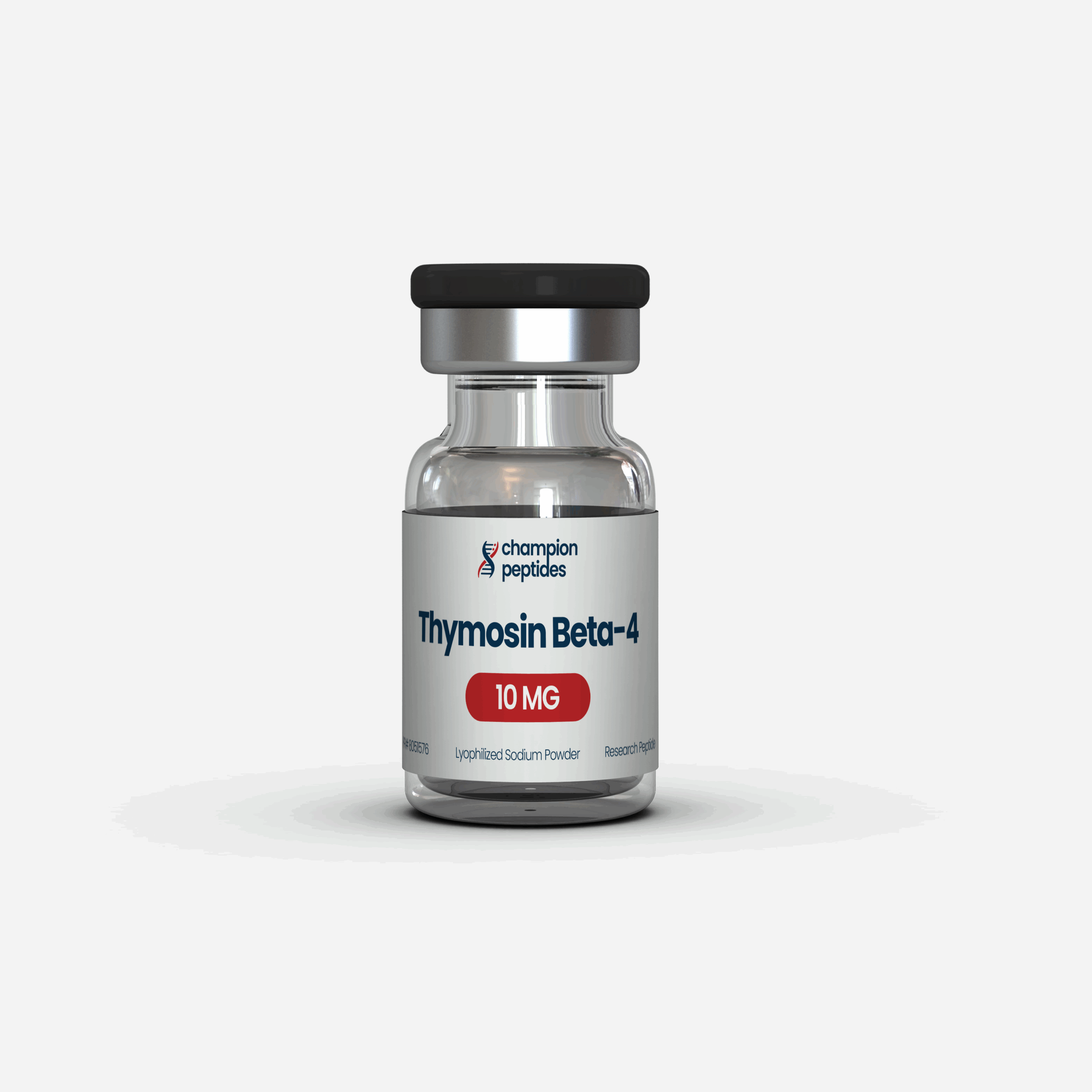
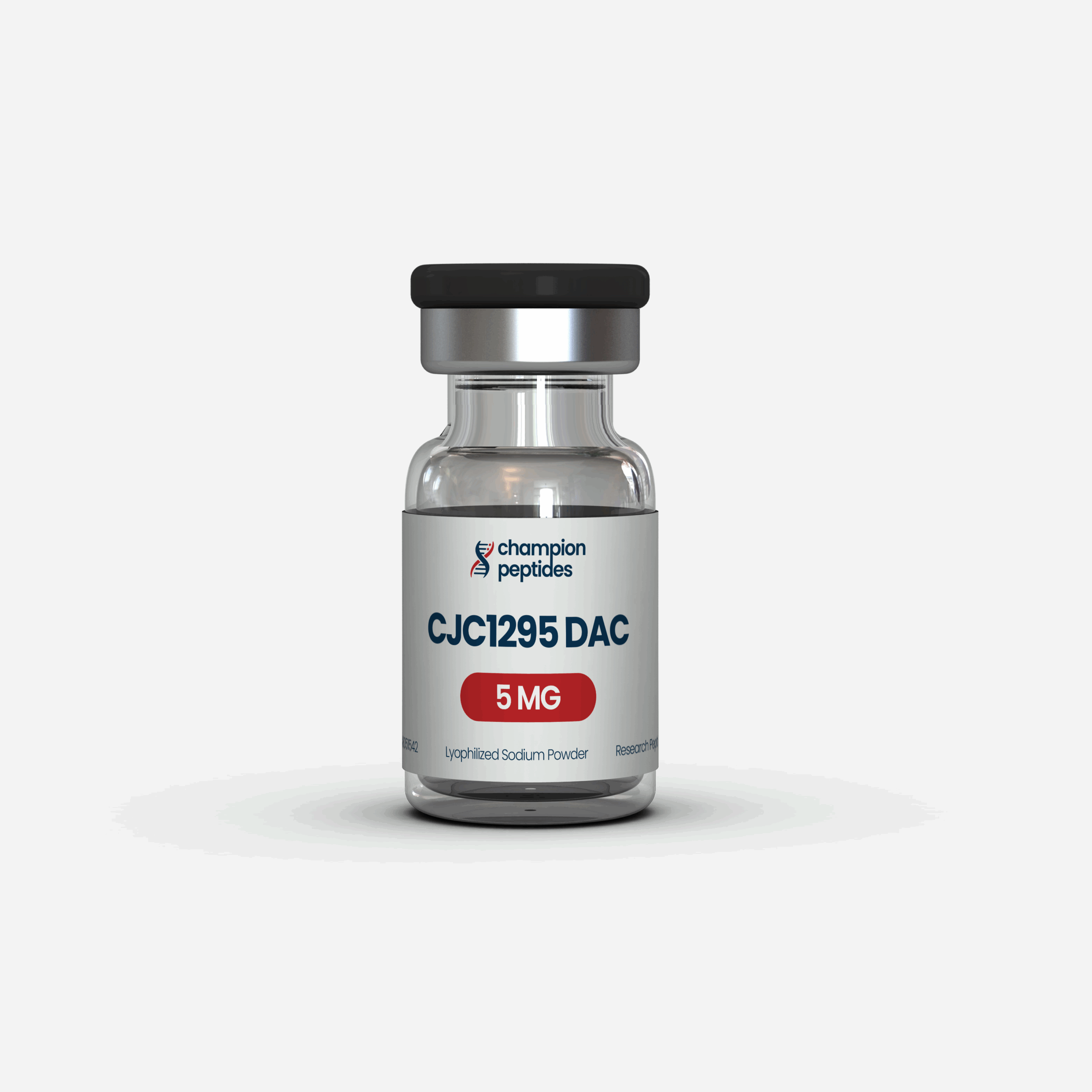
CJC 1295 with DAC
Overview
CJC 1295 with DAC is a growth hormone secretagogue peptide that enhances natural growth hormone release, which benefits muscle growth, anti-aging, and cellular health. Its stimulation of growth hormone levels improves muscle tone, energy, and recovery, making it a popular peptide for physical performance enhancement.
Positive Effects in Humans
- Promotes natural growth hormone release for muscle growth and metabolism.
- Anti-aging benefits through skin elasticity and cellular renewal.
- Boosts energy levels, improving physical endurance.
- Facilitates muscle recovery, reducing downtime.
- Improves sleep quality, aiding recovery processes.
Key Research Sources
Journal of Endocrinology: Role in Growth Hormone Release
Peptides.org
Clinical Endocrinology: Anti-aging Effects of CJC 1295
Alpha Labs
American Journal of Physiology: Analysis of Growth Hormone Release
LVLUP Health
BPC 157 + TB500 (5 mg + 5 mg) Combination
“Wolverine Stack”
Overview
Positive Effects in Humans
- Speeds up post-injury or post-surgery recovery.
- Anti-inflammatory effects expedite recovery.
- Improves flexibility and tissue regeneration.
- Supports cellular repair in muscle and tendon tissues.
- Enhances resilience and performance for active individuals.
Key Research Sources
Journal of Molecular Medicine: Synergistic Benefits of BPC 157 + TB500 (Seiwerth et al., 1997)
Alpha Labs
Orthopedic Research and Therapy: Recovery and Repair Using Combined Peptides
LVLUP Health
Medical Journal of Inflammatory Research: Healing Acceleration Post-Injury
LVLUP Health
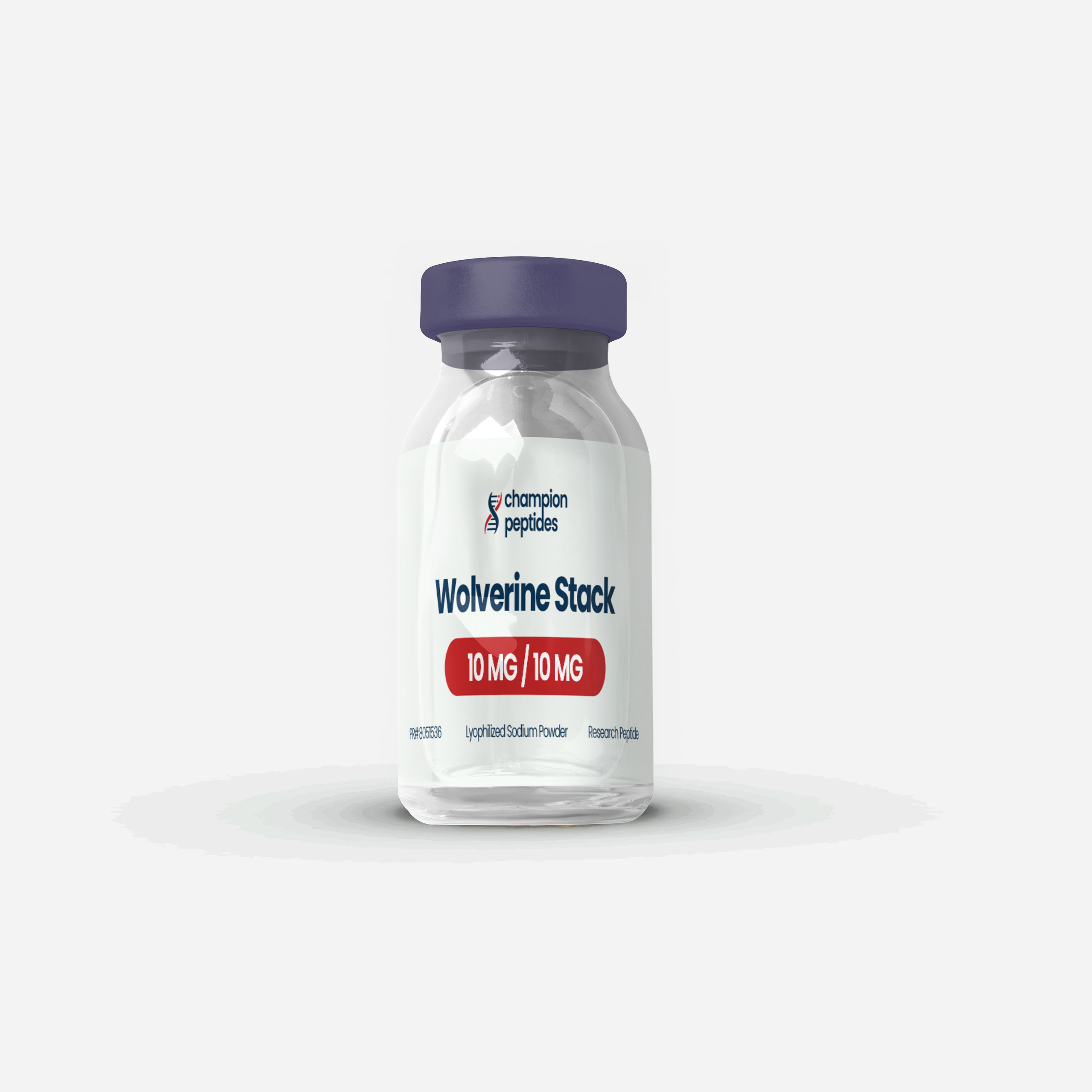
Stay Informed with Champion Peptides
Champion Peptides is dedicated to delivering science-based, transparent information on peptide products. For the latest insights and studies, visit our Research & Education Hub.
